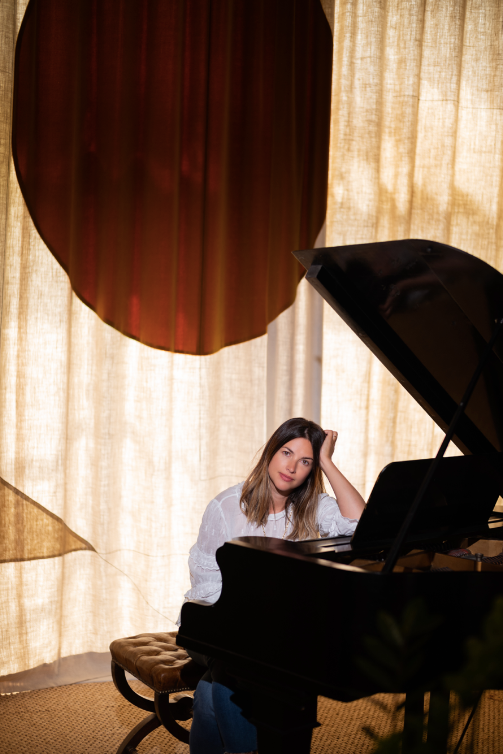A professional actress who became a fully-fledged film composer with no plans to do so: composer Amelia Warner’s story is a fascinating one. While working in front of the camera, she made music in her free time, which, via the strong encouragement of her friends, became the singer-songwriter project, Slow Moving Millie. After landing a song placement in the hugely competitive John Lewis Christmas advert slot, her newly found arrangement skills eventually led to her working on such films as Mum’s List and Mary Shelley. Headliner talks to Warner about working on her first period romcom, Mr Malcolm’s List.
Born in Birkenhead, Merseyside, Warner began breaking into the film and TV industry as an actor at the turn of the millennium with roles for the BBC, on the big screen and on stage at the Royal Court theatre in London.
But the fact she was spending most of her free time making music seemed to be an indicator of something bigger, at least to her friends who felt she should take music more seriously.
“When I was about 16 I was incredibly lucky and had the opportunity to have an agent and audition for things,” Warner says.
“Music had always been a huge passion and my favourite thing, but I found studying it at school really off-putting; I struggled with all the formal learning of it and the theory. But after a few years of acting professionally, I knew it wouldn’t be the right fit for me, even though I did love being part of films and being on set.”





